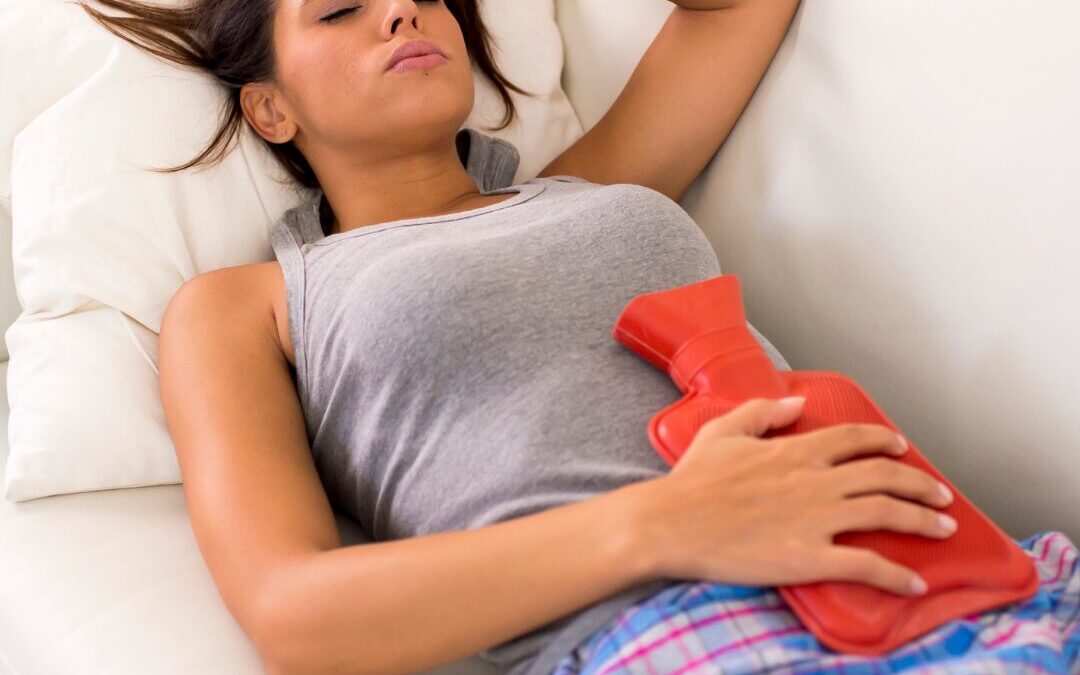While menstrual cramps are well-known, other discomforts, such as breast tenderness, diarrhea, or constipation, are also common. These symptoms, though often overlooked, are normal and can sometimes leave you feeling uneasy. Let’s delve into these common menstrual issues and their causes.
Uncomfortable Period Symptoms Are Caused by Hormonal Changes
Every menstrual cycle involves significant hormonal fluctuations that can impact your body in multiple ways. Estrogen and progesterone are key players in this process, and as their levels rise and fall, you may experience a range of discomforts. Additionally, prostaglandins—chemicals produced by the uterus during your period—can contribute to various uncomfortable symptoms, including cramping and diarrhea.
What Causes Period Cramps?
Prostaglandins, chemicals released during your period, trigger uterine contractions to shed the lining. High prostaglandin levels cause strong contractions, leading to cramps. Typically, these levels peak on the first day, explaining why cramps often ease as the period progresses.
What Causes Tender Breasts During Your Period?
Rising estrogen and progesterone before your period cause breast tissue to swell, leading to tenderness. This discomfort usually starts 3-5 days before your period and may persist during it.1 Wearing a supportive bra, using over-the-counter pain relief, and applying a warm compress can help alleviate discomfort.
Your Period and Diarrhea
Experiencing “period poops” or diarrhea during your period is normal for many women and is usually caused by the rise in prostaglandins that also cause period cramps. These hormones may also stimulate the intestines, leading to increased bowel movements and digestive discomfort. While uncomfortable, diarrhea and increased bowel movements can be normal period symptoms.
Why Am I Constipated On My Period?
Constipation just before your period is often linked to rising progesterone levels. As progesterone increases, it can slow down your digestive system, leading to constipation. This hormone relaxes the gut, causing it to function less actively than usual.2 Interestingly, this is similar to why many women experience constipation during pregnancy, as progesterone helps prepare the body for delivery.3 While your period typically follows a drop in progesterone, some women still find themselves dealing with constipation during menstruation.
What About Dizziness During My Period?
Dizziness during your period can be a bit scary, and it often happens because of hormonal changes, blood loss, or a few other factors. As hormone levels, like estrogen and progesterone, fluctuate, they can throw off your balance and make you feel lightheaded. If you’re experiencing heavy bleeding, it might lead to lower iron levels, which can make you feel weak and dizzy due to less blood in your system.
Dehydration can also play a role—if you’re not drinking enough water, especially while dealing with cramps, you might feel faint. Low blood sugar or increased stress and anxiety can contribute to that dizzy feeling too. To help combat dizziness, make sure you’re staying hydrated, eating well, and managing stress as best you can.
Back Pain During Your Period
Similar to diarrhea and cramping, lower back pain during your period is thought to be caused by prostaglandins and may lead to radiating pain in both the abdominal and lower back area. To reduce back pain during your period, consider over the counter anti-inflammatories and heat therapy or warm baths.
Summary:
Getting to know the symptoms that come with your period can really help you manage this natural part of life. While cramping often gets the most attention, you might also deal with sore breasts, constipation, diarrhea, dizziness, and lower back pain—all of which can impact how you feel. These discomforts are mostly caused by hormonal shifts and prostaglandin levels. Remember, you’re not alone in experiencing these symptoms. If you’re facing severe or ongoing issues, don’t hesitate to reach out to a healthcare professional for help!
Uncomfortable Periods?
Book an appointment to find a solution at our affordable reproductive health clinics today!

